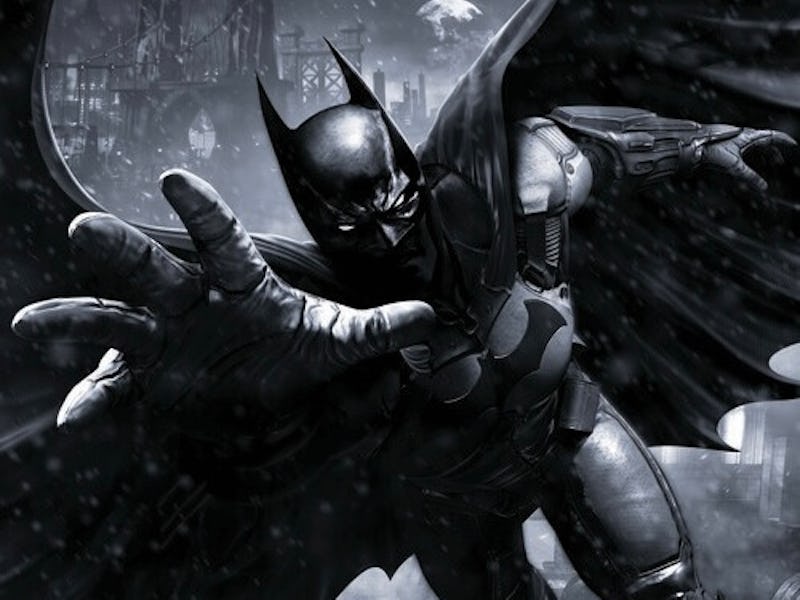Another Developer Deserves A Shot At Batman
WB licensing out DC characters and other IP could be for the best.

It’s an open secret that Warner Bros. has been in a strange, strange place these last few years. The company lost nearly $10 billion during the most recent financial quarter alone. And thanks to the recent failure of Suicide Squad, its gaming division hasn’t fared any better.
During the recent earnings call, top executives expressed interest in licensing out their recognizable IP to other developers to offset some of WB's major losses on the gaming front. And while it could be a major disservice to WB Games’ talented internal teams, it might be what’s best for both the business’s bottom line and for iconic characters like Batman.
President of global streaming and games JB Perrette and CEO David Zaslav shared their thoughts on doubling down to make a lucrative free-to-play hit and leveraging their recognizable franchises for future success.
“We have 11 studios here and we have a lot of IP,” Zaslav said during Wednesday’s Warner Bros. Discovery second-quarter earnings call. “And there's also a lot of interest among others in coming to take advantage of some of that IP for gaming, which we're looking at.”
Licensing out characters like Batman and Superman to other game developers might be one of David Zaslav’s best ideas.
The company is considering the action due to the unpredictable nature of the business, at least from the point of view of its top brass.
“In a short period of 12 months, we went from having the record year in 2023 with Hogwarts Legacy to unfortunately having the opposite side of that spectrum with Suicide Squad,” he explained.
Lending out characters like Batman to developers dying for a chance to make something new might be one of the better ideas the company has had in recent years. Warner-owned studios like NetherRealms, Rocksteady, Monolith, and WB Montreal have no doubt done great work with these properties. Games like Shadow Of Mordor, the Injustice series, and Batman: Arkham Knight are some of the best in their genres. But letting creators big and small bring something fresh to the table is an easy way to heat up player interest.
Disney has found great success licensing Star Wars to multiple developers.
Warner’s perpetual rival, Disney, is already doing this great results. After Disney’s 2015 deal with to make Star Wars games with EA produced mixed results, the company opened up its IP to outside developers like Massive Entertainment and Quantic Dream to leave their mark on a galaxy far, far away. Similarly, the company has allowed developers of all sizes to play in the sandbox that is the Marvel Universe. The fact that a mobile hit like Marvel Snap, games about Iron Man and Black Panther, an Amy Hennig-produced Marvel period piece, and a Marvel-themed hero shooter can all co-exist shows the potential this strategy has.
Letting an indie team make a slower-paced Batman game focused on solving crimes would be a welcome alternative to the more action-focused games coming from WB’s own studios. Maybe a Suicide Squad game from a developer less focused on sustainable business models would be what the license needs. Looking beyond Gotham City, maybe fans can finally get that Superman game they’ve been expecting for a while now.
The DC universe shouldn’t be the only one to benefit. Recent WB-published games suggest that it might be good for all of their IPs to get some distance from the general cluelessness of the company.
After Rocksteady’s three hits and a certified miss in the Batman universe, maybe another developer should get a shot at making a flagship Batman game for console and PC.
Warner leadership can’t seem to wrap its head around what made its biggest success, 2023’s Hogwarts Legacy, such a huge hit. Sure, the single-player RPG leveraged the Wizarding World license to get people interested. But it was also a straight-up, no-frills video game. As shallow as its mechanics proved to be in the long run, its design wasn’t bogged down by microtransactions, seasonal content, and free-to-play drivel. Harry Potter fans just got to exist in that universe for 50 hours or so, and WB raked in all the profits.
Of Warner’s last five games (Multiversus, Suicide Squad, Mortal Kombat 1, Hogwarts Legacy, and Gotham Knights), Avalanche’s wizarding world game was the only one not weighed down by games-as-a-service scumminess. Even Gotham Knights, a game free of actual micro-transactions, is full of meaningless in-game currencies and cosmetics. These elements seemed to be clear evidence that monetization plans were removed at some point during development, as they made little sense as mechanics outside of that context.
So long as Warner wants to chase free-to-play trends and implement monetization into traditional single-player titles, licensing out their properties is a great way to save these iconic characters from these misguided business strategies. Warner has a chance to save its IP from itself — and both players and creators (and investors) stand to benefit.